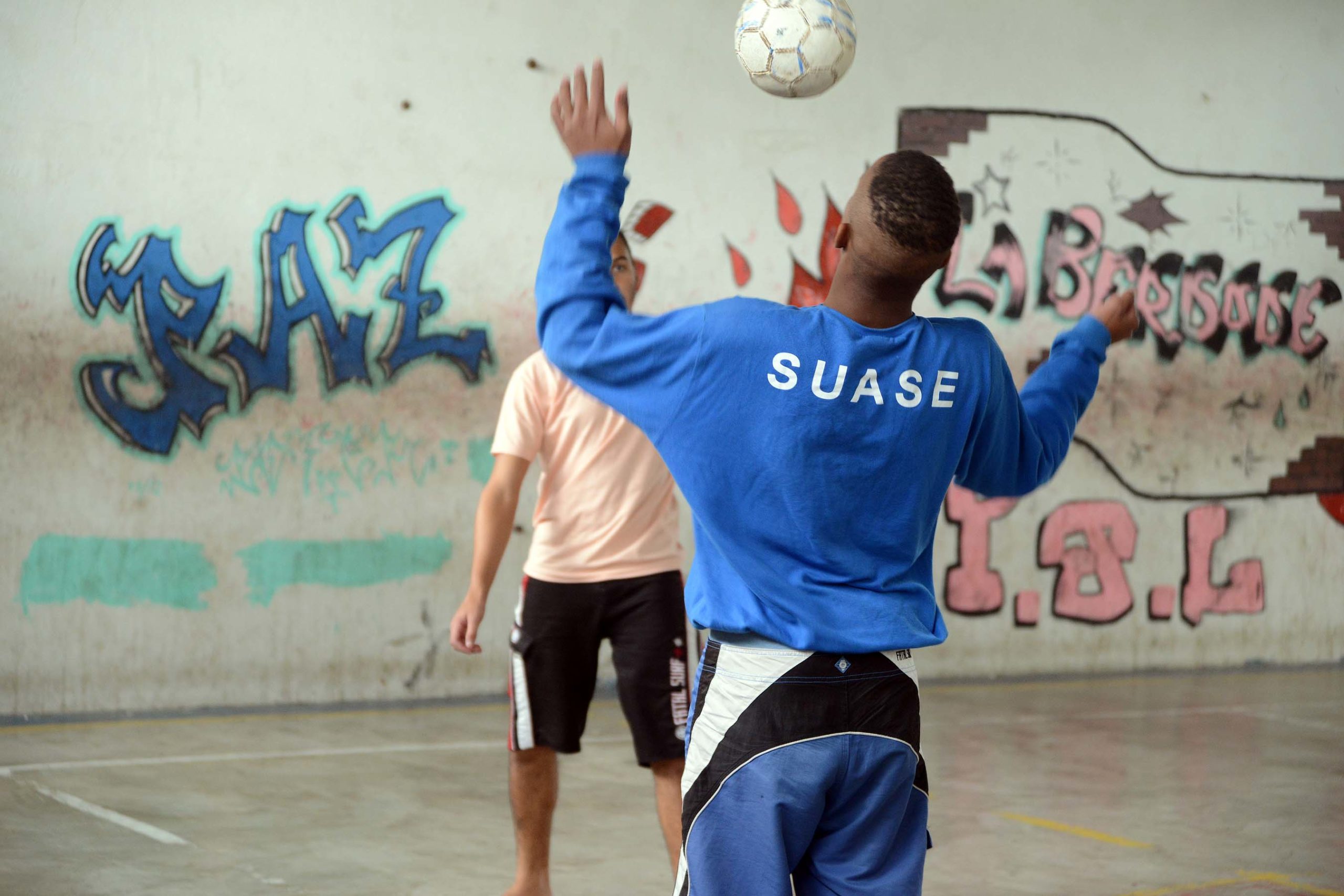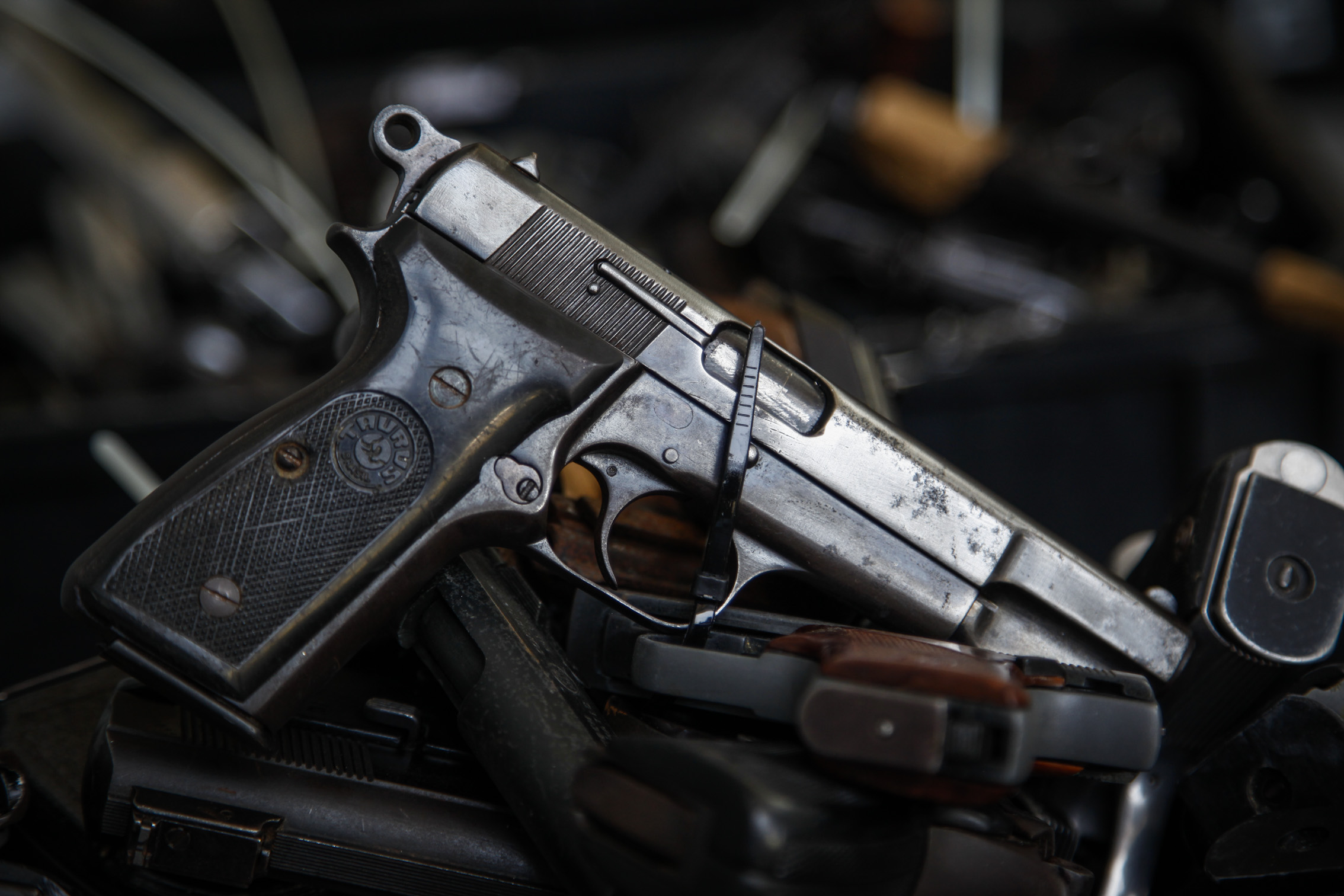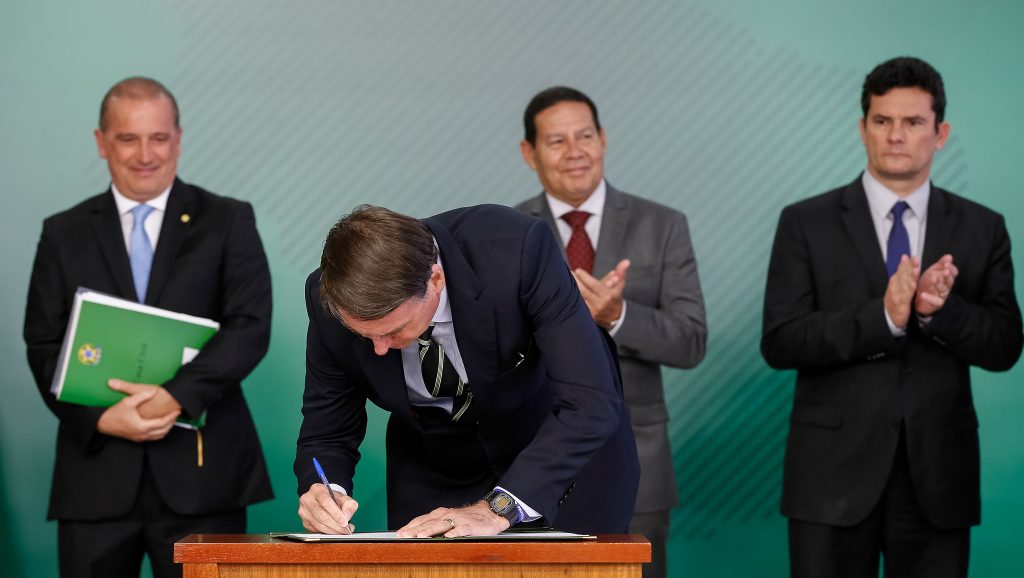
Youth Detention Center in Justinópolis. Photo: Omar Freire/Press-MG
In 2019, the state of Rio de Janeiro approved a law (8,400/2019) authorizing agents in the youth detention system to be armed. The law was passed against the backdrop of a dramatic rise in violent crime, in large part caused by an increase in the number of weapons in circulation.
In December of the same year, the Socialism and Liberty Party (PSOL) filed a Direct Action of Unconstitutionality (ADI) in the Supreme Court against the new rule, claiming that it violated article 227 of the Federal Constitution that establishes the absolute priority of children and adolescents in the formulation and application of public policies.
In 2020, Conectas, the Alana Institute, IBCCrim (Brazilian Criminal Sciences Institute), Gajop (Office of Legal Counsel to Grassroots Organizations) and the organization Justiça Global were admitted as amicus curiae in the case. In their joint brief, they warn of the illegalities of the rule and its effects on the essential and specific rights guaranteed to children and adolescents.
The first problem identified by the organizations is formal: according to a precedent already set by the Supreme Court, it is the job of the federal government – and not state governments – to legislate on issues related to national security, such as the issue of bearing arms.
The organizations also stated that the law conflicts with the objectives of Sinase (National Youth Detention System), which establishes that the role of the agents is to protect the rights and the safety of the adolescents and attend to their cultural, educational, recreational and rehabilitation needs. Accordingly, permitting these agents to bear arms is unjustified and would constitute a misuse of their role.
Additionally, the organizations pointed out that encouraging the circulation of more firearms is likely to increase deadly violence throughout society, with profound impacts on the lives and rights of children and adolescents – particularly those most exposed to racism and violence.
Finally, the joint amicus curiae brief explains that the international treaties on the protection of children and adolescents clearly emphasize the need for care, accountability and rehabilitation. Policies aimed at this group, therefore, should focus on the promotion and protection of rights, not public security.
A study conducted by the Brazilian Association of Pediatrics found that a child or adolescent is killed by firearm every 60 minutes in Brazil.
Technical information
- Case: ADI-6286
- Court: Supreme Court
- Status: Awaiting judgment
- Procedure:
- 12/13/19: ADI Case filed by PSOL
- 8/21/20: Request for admission of the organizations as amicus curiae



